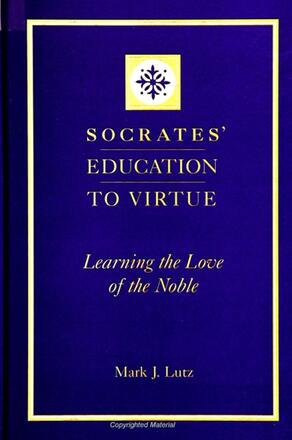
Socrates' Education to Virtue
Learning the Love of the Noble
Alternative formats available from:
Argues that Plato's dialogues contain a surprisingly neglected account of Socrates' education about the love of noble virtue and that recovering this education could help broaden and deepen liberalism's moral and political horizon.
Description
Socrates' Education to Virtue argues that Plato's account of Socrates offers the fullest account of virtue and of the place of virtue in political life. Focusing on Platonic dramas such as the Symposium, Alcibiades Major, and the Republic, Lutz recounts how Socrates came to understand the longing for the "noble" and to believe that this longing is best satisfied by the search for knowledge or wisdom. By scrutinizing how Socrates' conversations allow him to acquire, extend, and confirm his knowledge of eros and of noble virtue, the book recovers a powerful, concrete, and nondogmatic Platonic reply to ancient critics of philosophy such as Aristophanes and suggests a further Platonic response to modern critics of classical rationalism such as Nietzsche and Rorty. Moreover, it shows how Socrates' education to virtue teaches him that the philosopher must always respect and examine alternative accounts of nobility and excellence. The book argues that the recovery of Socratic education can strengthen liberal democracy not only by broadening and invigorating political, moral, and religious debate but also by serving as an example of virtue in an open society.
Mark J. Lutz is Assistant Professor in the Department of Government at the University of Notre Dame.
Reviews
"I know of no other work that so fully brings to life the debate between Plato and Nietzsche, especially from the side of Nietzsche. The arguments against Socrates or Plato one finds in Rorty and Nussbaum are shown to be profoundly wanting by this book. It will do an enormous amount to shake the prevailing scholarly view that Plato and the Western tradition in general is dead. Consequently, its topic is deeply significant not only to political science and philosophy but also to scholars in comparative literature, English, law, and, of course, classics--and most notably to a wider audience of intellectuals. For anyone interested in reinvigorating liberalism, this is indispensable. " -- Joshua Parens, University of Dallas
"Socrates' Education to Virtue is extremely well-written. Lutz does Plato scholarship a great service by reintroducing Alcibiades I as an important part of our picture of Socrates. " -- Catherine Zuckert, Carleton College
"The main significance of this work lies in its timely contribution to the current debates concerning higher education. Theorists of education debate many of the issues that this text addresses without benefit of a sound understanding of the Socratic method and of how it could be expected to yield politically responsible individuals. Lutz's book addresses this lacuna in terms which are accessible without compromising fidelity to the classical texts. Accordingly, it could forge for itself a solid place among the voluminous publications on related topics such as values education in public schools, the traditional canon of texts, political correctness, issues of rhetoric versus philosophy in political discourse, and virtue as such. " -- Patricia Cook, Loyola College, Maryland